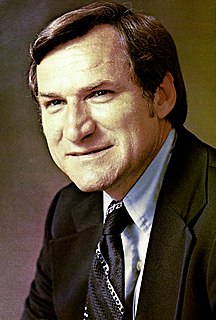A Quote by Alfred North Whitehead
No religion can be considered in abstraction from its followers, or even from its various types of followers.
Quote Topics
Related Quotes
Often, in a given project team or network, one sees leadership roles shifting among various members at various times. Attempts to fit these into traditional views of "leader" and "follower" don't quite work. It's more like Twitter: the "leader" has "followers" - but the "followers" are empowered to alter the relationship unilaterally, and the "leader" must continually earn the consent of the "followers."
Not many of us will be leaders; and even those who are leaders must also be followers much of the time. This is the crucial role. Followers judge leaders. Only if the leaders pass that test do they have any impact. The potential followers, if their judgment is poor, have judged themselves. If the leader takes his or her followers to the goal, to great achievements, it is because the followers were capable of that kind of response.
Somebody with a billion followers can tweet, 'See my movie,' and it can still tank. Followers don't always translate into success because I think people are too savvy. When something takes off, it's because people are connecting to it - not because someone with a lot of followers says to care about it.
Those who like myself, consider themselves to be followers of Buddha, should practice as much as we can. To followers of other religious traditions, I would like to say, 'Please practice your own religion seriously and sincerely.' And to non-believers, I request you to try to be warm-hearted. I ask this of you because these mental attitudes actually bring us happiness.







































